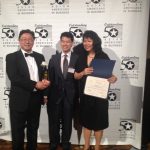Rivera Flap Shows NY High Court Picks Can Expect Scrutiny
By Pete Brush
Law360, New York (February 11, 2013, 8:02 PM ET) – The New York State Senate confirmed law professor Jenny Rivera to the state’s highest court Monday on a voice vote, but a bitter debate over her resume signals to Gov. Andrew Cuomo that upcoming judicial nominees can expect heightened scrutiny, especially if they don’t have bench experience.
Rivera, a law professor at the City University of New York, becomes the first judge ever in the Empire State to leap straight to the New York Court of Appeals from academia.
An expert in Hispanic and women’s civil rights issues, Rivera replaces the court’s first and only Hispanic judge, Carmen Beauchamp Ciparick, who was forced to retire at the end of 2012 after reaching the age of 70.
“Professor Rivera has dedicated her career to public service,” Cuomo said after the vote. “Her extensive experience in civil rights law and her passion for making our state a fairer and more just place will greatly benefit New York.”
That Rivera’s Senate confirmation came on a voice vote suggested Republican opposition wasn’t uniform, experts said. But that didn’t stop several influential Republicans, including Middletown, N.Y., Republican John J. Bonacic from taking to the Senate floor in opposition.
“To put someone who has such narrow legal experience on the highest court of this state for 14 years … and pass over other highly qualified nominees is not something that I can support,” said Bonacic, whose judiciary panel advanced Rivera’s nomination without recommendation after a testy Feb. 4 hearing that was carried over until the next day.
Bonacic was referring to a list of seven candidates, sent to Cuomo by the State of New York’s Commission on Judicial Nomination on Dec. 1, that included three state appellate division judges and two practicing attorneys.
“The nominee has a very limited law practice experience,” said Bonacic, adding that he had “concerns that she will be prone to judicial activism.”
Even though they didn’t have the votes to mount a serious challenge, Republicans are making it clear they will do what they can to make sure Cuomo doesn’t steamroll them at every turn, according to Pace University law professor Randolph M. McLaughlin, who also works as of counsel on civil rights matters at Newman Ferrara LLP.
“The Republicans were trying to send Cuomo a message, that they’re not a rubber stamp,” he said. “My gut instinct tells me, given the range of folks he has in the wings, that Cuomo will pick a sitting judge next.”
Cuomo won’t have to wait long before his next pick. After Rivera is sworn in, she will become the only the sixth sitting member on a court that is supposed to have seven judges.
The court had been operating with a relative skeleton crew of five judges after Ciparick’s retirement and the Nov. 6 death of Judge Theodore T. Jones. A slate of nominees to replace Jones is due to hit Cuomo’s desk in early March.
“If Cuomo doesn’t want to go through this brouhaha again, he’ll pick someone who is a judge,” McLaughlin said.
Cuomo also may find himself under heavy pressure to replace the deceased Jones, the court’s lone black judge, with another African-American, according to Albany Law School professor Vincent M. Bonventre.
“I will be shocked if the next list doesn’t have two or three African-Americans on it,” Bonventre said.
While Republicans attacked Rivera for a lack of experience, McLaughlin noted they also took issue with her academic writings, in which she espouses progressive views on civil rights, racial justice and women’s issues.
“They were trying to knock her down, embarrass her, or get her to say something stupid,” McLaughlin said. “It was pretty embarrassing to see her raked over the coals.”
The charge that Rivera lacks experience is not necessarily fair, according to experts, including Wollmuth Maher & Deutsch LLP<http://www.law360.com/firm/wollmuth-maher> partner Vince Chang, who heads the New York County Lawyers Association’s federal courts committee chair.
“A lot of people say the criticism of her experience was just a pretext,” Chang said, noting that state bar associations went over her record carefully and universally recommended her qualifications. “Many very fine judges were professors.”
Opposition to Rivera’s nomination didn’t come exclusively from Republicans on Monday. One of the state Senate’s mavericks, Bronx Democrat Ruben Diaz, said Cuomo, in nominating Rivera, seemed keen on pitting Hispanics against the state’s Republicans.
Diaz, an outspoken and often bombastic critic of Cuomo, added that past Hispanic nominees for other high offices in the U.S. didn’t receive the same support from New York’s Latino population when they were nominated by Republicans, including former President George W. Bush.
“Where were you when George Bush nominated Alberto Gonzales and Miguel Estrada?” Diaz asked his Latino counterparts from the Senate floor.
Overall the proceedings were a departure from the state Senate’s typical Court of Appeals approval process, which over the decades has been staid, with one or two minor exceptions, Bonventre said.
A fierce critic of state Senate inaction on high court nominees, Bonventre applauded the Legislature for subjecting Rivera to tough questions.
“They’ve made it clear to the governor that he can’t just nominate anybody and expect them to roll over,” Bonventre said. “They’re obviously going to start taking their constitutional responsibility more seriously than they have in the past. In the past, they have been complete rubber stamps.”
–Editing by John Quinn and Richard McVay.
All Content © 2003-2013, Portfolio Media, Inc.




